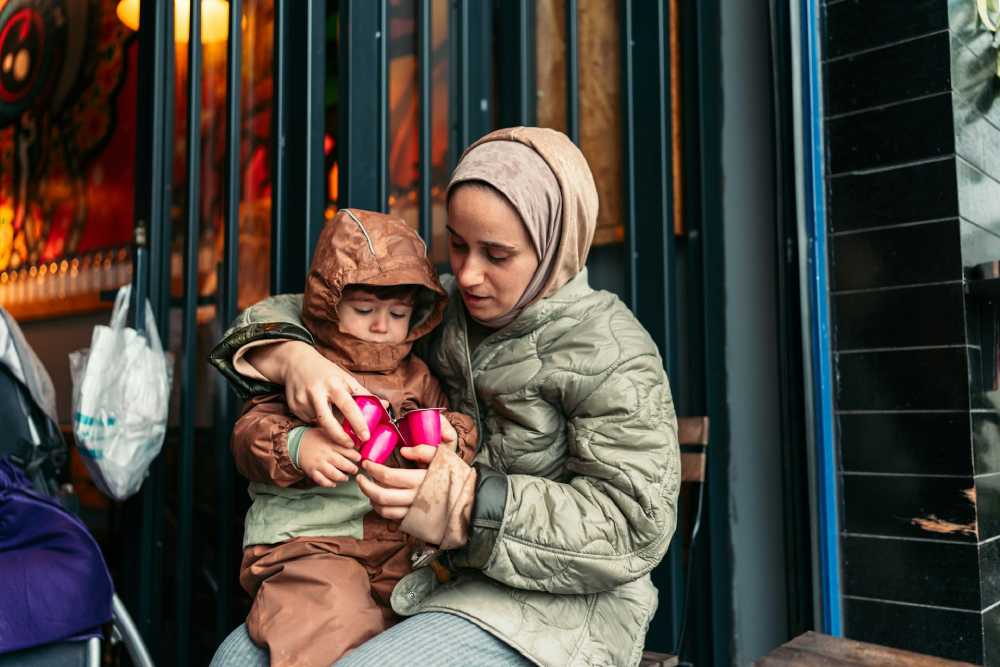Empathy is an emotional response and a guiding principle in humanitarian aid. This philosophy goes beyond providing temporary relief and extends to creating conditions for sustainable development and self-reliance.
In humanitarian work, empathy involves recognizing that each person suffering from disaster or deprivation is more than just a number; they have stories, aspirations, and the need for respect and understanding. Aid efforts incorporating these insights do more than alleviate immediate hardships—they rebuild lives and restore hope.
Contents
- 1 Islamic Relief’s Approach to Humanitarian Aid
- 2 Emotion and Action Intersect
- 3 Education: A Pillar of Empathetic Assistance
- 4 Incorporating Technology with a Human Touch
- 5 Addressing Global Hunger with Consideration
- 6 Responding to Crises with Empathy
- 7 Partnership: Multiplying Effects of Empathetic Work
- 8 Future Directions of Humanitarian Efforts
Islamic Relief’s Approach to Humanitarian Aid
Islamic Relief, including the efforts of Ahmed Shehata, is dedicated to providing both material support and emotional care. Their aid model focuses on delivering food, shelter, and medical aid while addressing the psychological and social welfare of those in need.
By taking this dual approach, Islamic Relief aims to empower individuals and build community solidarity, helping people recover and thrive beyond the immediate crisis.
Emotion and Action Intersect
Each humanitarian project offers insights into the significance of empathy. For example, establishing educational facilities and providing psychosocial support to children in conflict zones illustrate how Islamic Relief uses its understanding of complex emotional and physical needs to cater to its response.
Their initiatives often involve creating safe spaces where children can continue their education and receive counseling. This comprehensive effort addresses the scars of war and instability.
Education: A Pillar of Empathetic Assistance
Recognizing education as a potent vehicle for positive change, Islamic Relief’s empathetic philosophy underscores its educational programs. By constructing schools, training teachers, and providing learning materials in underprivileged areas, Islamic Relief opens doors to empowerment and self-sufficiency.
These educational efforts are about more than literacy and numeracy; they are about nurturing hope, understanding the social fabric of societies, and bridging divides through shared learning experiences.
Incorporating Technology with a Human Touch
The thoughtful application of technology can revolutionize how humanitarian aid is conceived and delivered. Islamic Relief is at the vanguard of this evolution, leveraging tools such as geographic information systems to improve disaster preparedness and digital platforms to educate the most remote and inaccessible regions.
Islamic Relief ensures that innovation always serves humanity’s best interests by combining tech-based solutions with an empathetic understanding of beneficiaries’ realities.
Addressing Global Hunger with Consideration
Hunger is a pervasive global problem that requires a deeply empathetic and strategic approach. Through projects that span emergency food provision to the establishment of sustainable farming practices, Islamic Relief seeks to meet immediate nutritional needs and enhance food security over the long term.
This multifaceted strategy is emblematic of an approach that appreciates the intricate relationships among poverty, climate change, and political dynamics in the fight against hunger.
Responding to Crises with Empathy
Crises, be they from natural disasters or conflict, call for a response that balances prompt action with sensitivity to the affected populations’ traumatic experiences. Islamic Relief’s protocols for emergency response are built around principles that prioritize human dignity, safety, and the long-term well-being of the communities they assist.
The organization’s empathetic model extends to post-crisis recovery, where support continues through reconstructing infrastructure, offering livelihood programs, and facilitating community-led initiatives that chart a course for independence and growth.
Partnership: Multiplying Effects of Empathetic Work
Collaboration is the linchpin for extending the reach and enriching the impact of empathetic humanitarian efforts. Islamic Relief’s strategic partnerships serve as a testament to the power of collective action.
By joining forces with on-the-ground NGOs, international agencies, and government bodies, Islamic Relief’s ability to engage at scale is greatly enhanced, allowing its principles of empathy to be woven into the fabric of global responses to human needs.
Future Directions of Humanitarian Efforts
The humanitarian sector continues to evolve, facing new challenges and embracing innovative solutions. In this dynamic landscape, the empathetic framework championed by organizations like Islamic Relief remains relevant and essential.
By intertwining technology, partnership, and a deeply ingrained respect for the human condition, Islamic Relief is shaping a future where humanitarian response is more effective, inclusive, and transformative.



